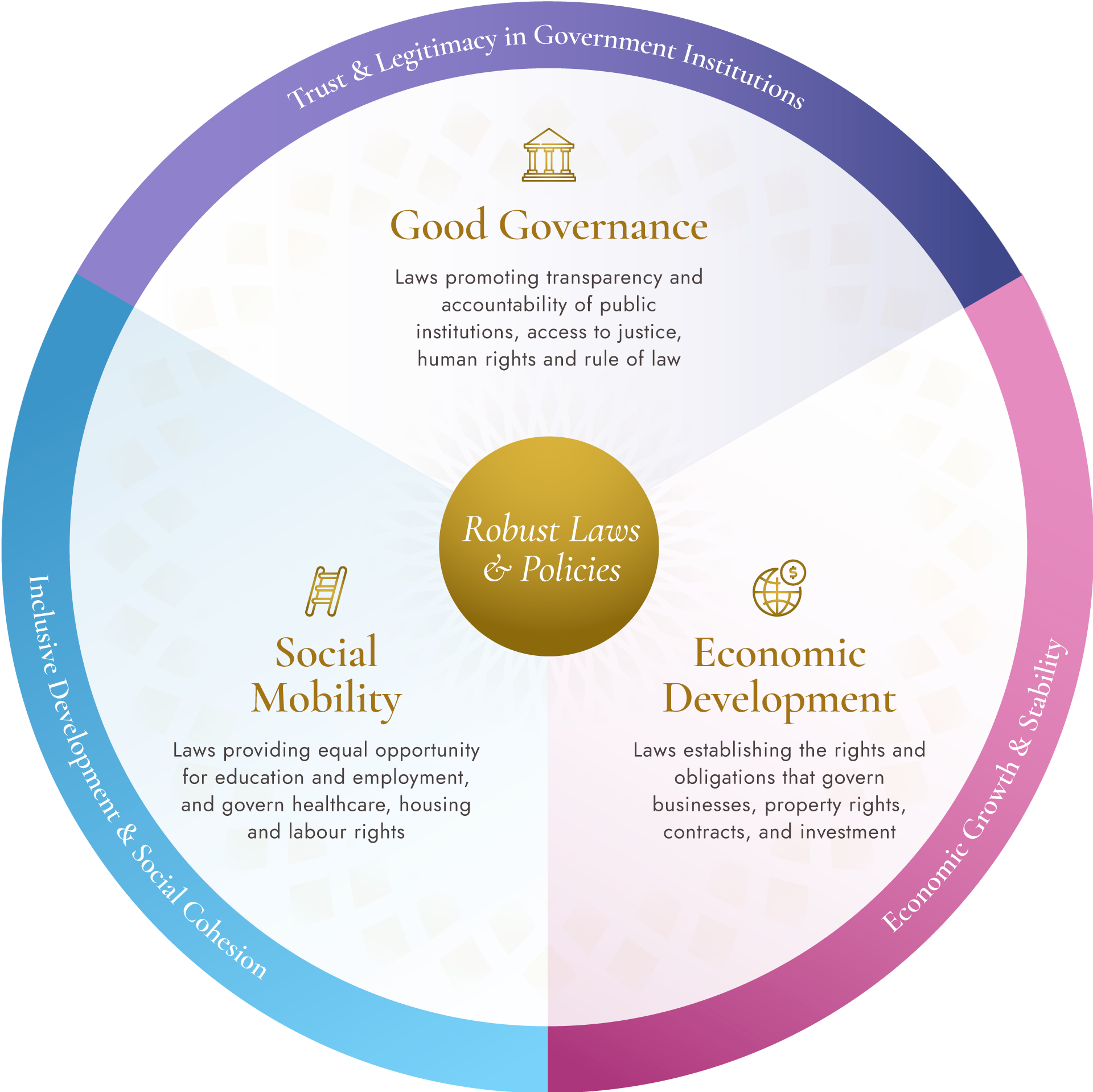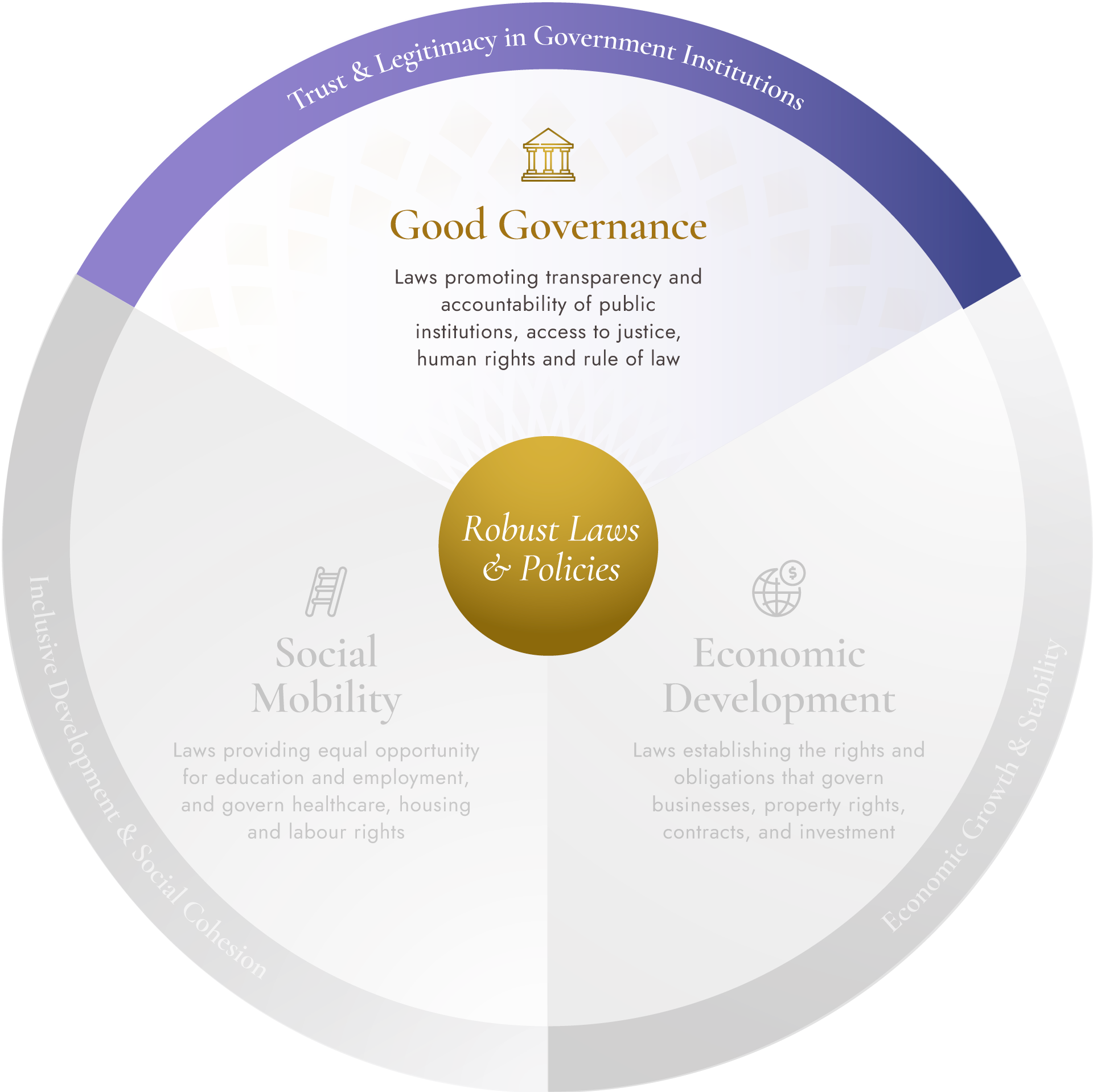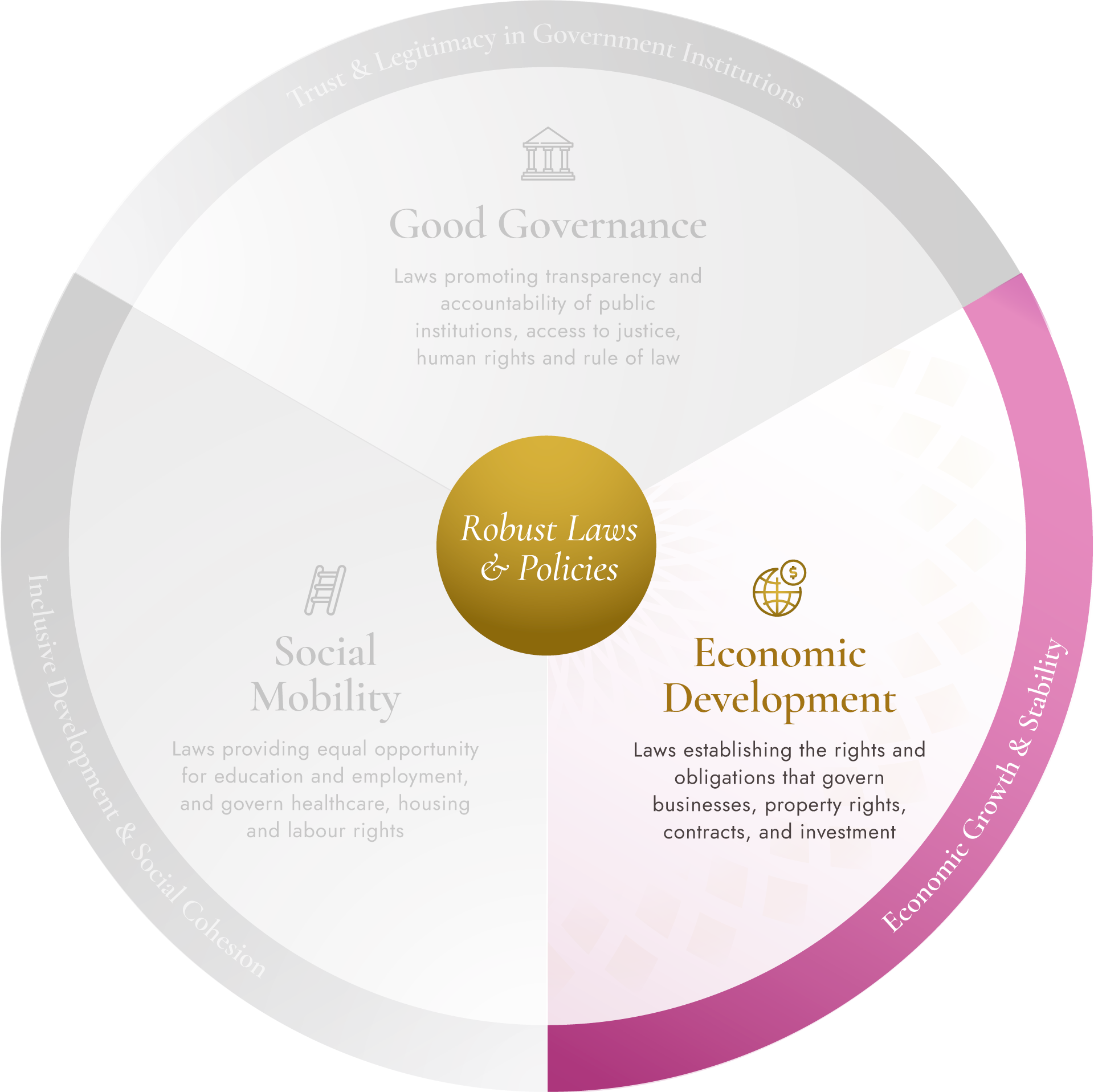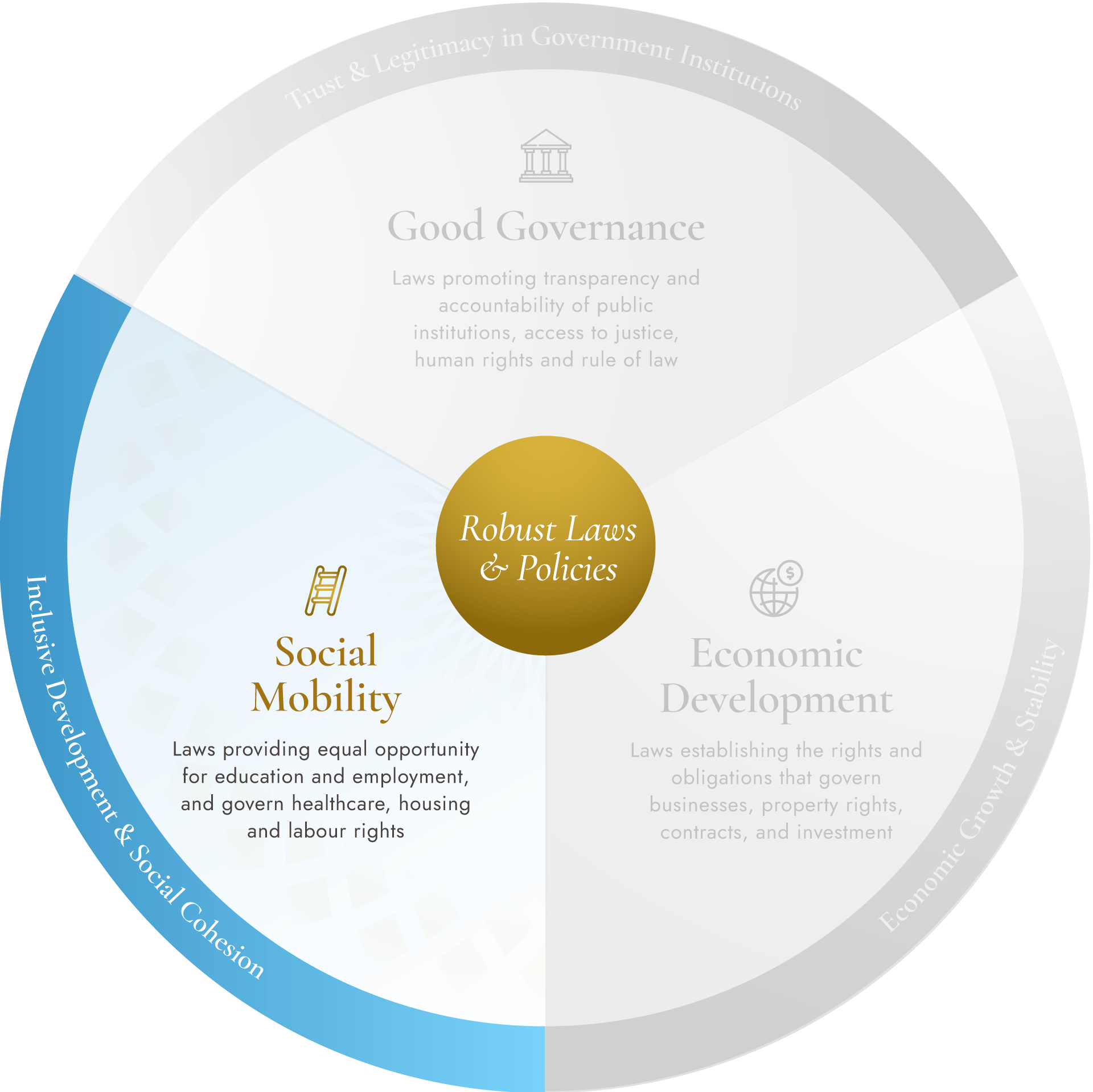Our Philosophy
The Chandler Law and Development Model (LDM)

Total Game Approach: Building Just, Equitable and Prosperous Nations
History and empirical research show that effective laws and policies are instrumental in building strong, prosperous nations. The LDM provides a holistic framework for guiding the law reform process, emphasising the interconnectedness of national governance, economic development, and social mobility.
Through strategic initiatives to develop effective legal frameworks in these three focus areas, CIJ works with national leaders, lawmakers, and legislative bodies to build resilient societies founded on the principles of justice, equity, and prosperity.

Good Governance
- Good governance is characterized by adherence to the rule of law, transparency, accountability, and respect for human rights, all of which are enshrined in legal frameworks.
- Legal frameworks establish the institutional mechanisms and checks and balances necessary to prevent abuse of power, corruption, and arbitrary decision-making, thus promoting good governance.
- Independent judiciary, robust legal institutions, and effective enforcement mechanisms are essential components of good governance, ensuring that laws are applied impartially, and citizens’ rights are protected.
- Transparent and accountable governance practices build trust in institutions, promote economic stability, and attract investment, contributing to long-term economic growth.

Economic Development
- Legal frameworks provide the foundation for economic activities by establishing rights and obligations that govern businesses, property rights, contracts, and investment.
- Clear and enforceable laws create a conducive environment for investment, entrepreneurship, and innovation, fostering economic growth and prosperity.
- Effective legal systems promote investor confidence, ensure fair competition, protect intellectual property rights, and facilitate access to finance, all of which are essential for economic development.
- Access to employment opportunities, decent wages, and social services contribute to poverty reduction, social mobility, and improved standards of living.

Social Mobility
- Legal frameworks play a crucial role in promoting social justice, equity, and inclusivity by protecting the rights of marginalised groups, ensuring access to justice, and fostering social cohesion.
- Laws governing education, healthcare, housing, labour rights, and social protection contribute to the well-being and prosperity of individuals and communities, addressing inequalities and promoting social mobility.
- Legal reforms aimed at enhancing access to education, healthcare, and social services, as well as protecting vulnerable populations, are essential for achieving sustainable development and improving overall quality of life.
- By addressing inequities and promoting social mobility, inclusive policies contribute to sustained good governance by fostering greater social cohesion, stability, and resilience.